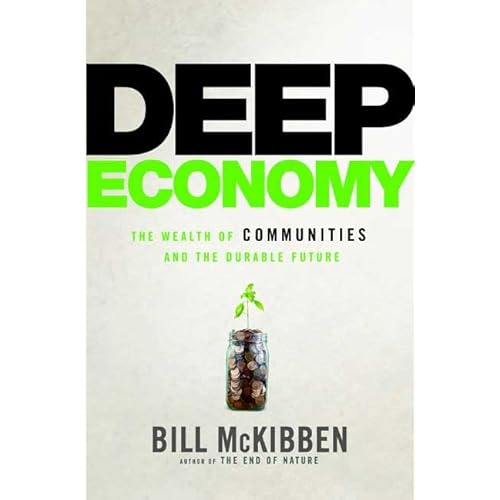
"And in the end it's reality I want to deal with - the reality of what our world can provide, the reality of what we actually want. The old realism - an endless More - is morphing into a dangerous fantasy. (Consider: if the Chinese owned cars in the same numbers as Americans, the world would have more than twice as many vehicles as it now does.) In the face of energy shortage, of global warming, and of the vague but growing sense that we are not as alive and connected as we want to be, I think we've started to grope for what might come next. And just in time."
McKibben's point is this: "More" and "Better" are not turning out to be the best motivations for civilized society. Rather than making our lives full and rich, these economic motivators have left us overindulgent and wanting. Perhaps simplicity and community are the best motivators for a new age. If so, we are certainly poised for a better world. That not only makes me excited about America's future, but it also makes me excited about the cause of Christ. After all, Jesus is the perfect model of simplicity and community.
1 comment:
This stuff is precisely why I like Marva Dawn so much. What is even more alarming (as Dawn points out) is the negative impact "more" and "better" has had on Christian community. "More" and "better" have become the defacto standards by which we measure success in the church. In her latest book (Our Fettered Hope) she points out how our accumulation of stuff, motivated by our radical acceptance that "more" and "better" are actually more and better, has had a negative impact on the world (economical and environmental).
Post a Comment